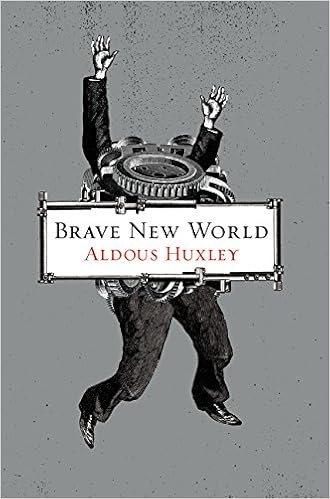The rise in popularity of dystopian themes in the ninteenth century is often traced back to We, a dystopian themed novel by a Russian author named Yevgeny Zamyatin, which is often recognized as the first of its kind. Since them countless authors have written using this theme, dystopian literature gradually becoming more and more popular. The older, more influential books that can be considered classics, are what I am discussing on this page.
This genre is, hands down, my favorite dystopian genre. Unlike the teen fiction novels, these books rarely have a happy ending, instead they utilize the ending to hammer their point in one more time. I think that the lack of the constraint of an upbeat ending, dystopian literature rises to a new level of greatness. I think that these authors are incredibly creative and insightful, having the ability to pick out something they view as wrong in society and create on entire future where that one thing is the focus of the society is incredible. These books were written, obviously, by their authors, and edited by their publishers to be more consumer friendly, then the novel is left to he audience to consume. With the classics, there is the addition of analysis by english teachers and their classes and academics.
Below are two examples of dystopian classics: the first being one of my personal favorites, and the second being the novel that started it all.
Brave New World by Aldous Huxley

Huxley used his novel to criticize the fordism system, emphasizing his belief that things such as the production line prevented companies from viewing their employees as valuable individuals, and they prevented creativity and individuality. These ideas are blown out of proportion in this novel, to the point where everything in society, including children, are created this way. This novel is incredible, I highly recommend reading it.
We by Yevgeny Zamyatin
